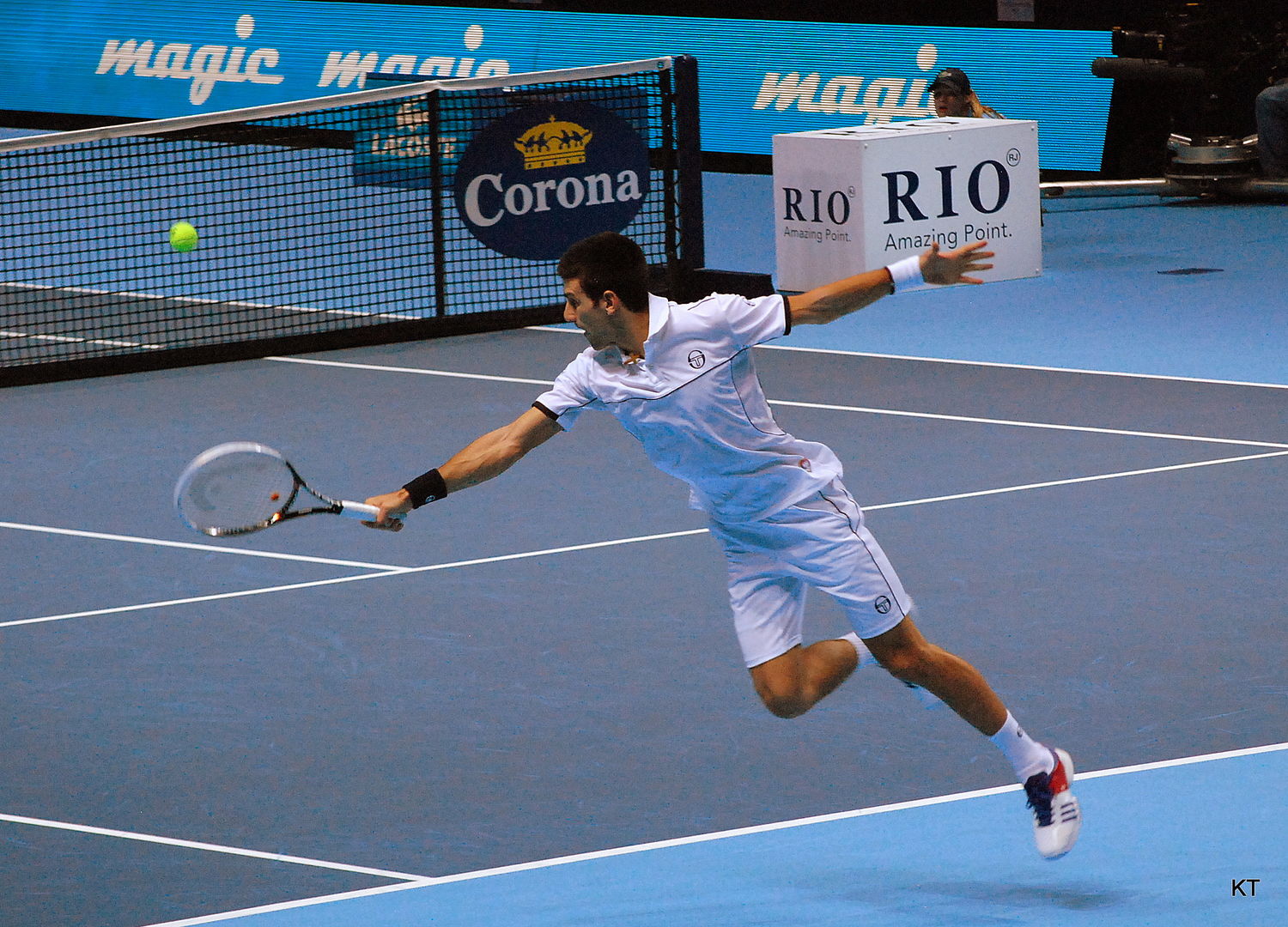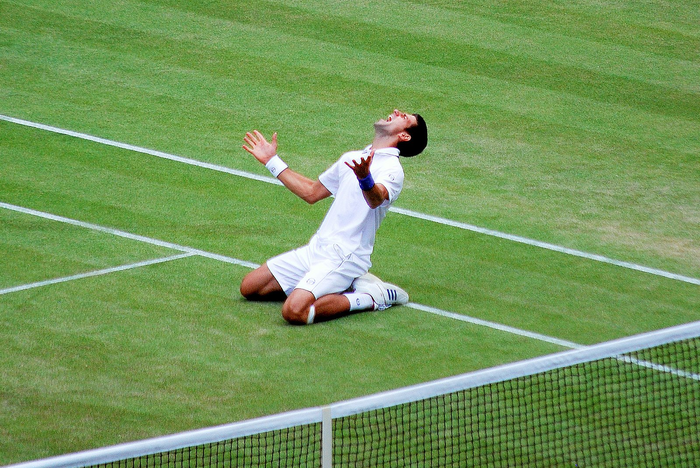Last week was another great week to be Novak Djokovic. After a long ever-twisting legal battle with the Australian authorities – the final court decision was to have the Serbian player deported out of the country, denying his participation in the Australian open. And still, it is doubtful that the best player in the world will not recuperate from this setback and eventually win his much desired 21st grand slam. What is a setback for Djokovic the tennis player might just be a huge leap for Djokovic the martyr, or better- Djokovic the Christ. Srdjan Djokovic, the player’s father, rationally summarised the situation with the words: “They nailed Jesus to the cross, and he still lives among us. The same way they are trying to crucify Novak’‘. This comparison is perhaps the best description of how fans are viewing the unfolding drama and how it will impact Djokovic’s reputation, because, though probably not the most physically agreeable moment, Jesus’ crucifixion was definitely the peak of his religious career.
Djokovic’s deportation is no more of a loss to him than it is a win for vaccines. Vaccinated people’s immunity does not increase in response to karmic justice. No one is going to get vaccinated because Djokovic could not compete; the same way that no one started fact-checking their tweets because of Trump’s ban from social media. On the contrary, anti-vaxxers have a new emblem to worship and maybe even the average covid-news-exhausted arm-chair tennis fan may feel disappointed not to see the world’s best player perform on his screen. This is not to say that the Australian authorities should have let Djokovic stay in Australia: it is only logical that people who lie in order to get a visa will be deprived of it. It is to say, however, that to frame the story as merely a pro or anti-vaccine debate would be biting directly into Djokovic’s false narrative. The true story here revolves not around vaccines but rather around how much we are willing to go out of our way in our adoration of lying men.
“It is unsurprising that the response to how public figures have dealt with the pandemic seems to be highly gendered”
The real reason for Djokovic’s down-under downfall is his belief that he can always lie, and get away with it. In his visa application he claimed not to have visited any other countries prior to his arrival to Australia - yet he did. He boasted on social media that he got an exemption permission – only to discover that the Australian authorities do not feel the same way. Why would he deserve an exemption? Due to his natural immunity, of course. An immunity which he had gained when he got covid. When did he get covid? Just before doing an in-person interview for L’equipe. This new-Jesus isn’t dying for anyone’s sins, but would probably be willing to stake some journalists’ health for the sacred sake of his cover photo.
Yet, both in the Tennis court and at the judicial one, he finds himself blameless. He didn’t lie on his visa application, his manager made a mistake. He didn’t get covid – until he miraculously recovered. Djokovic twists the truth so many times it sometimes completes a full circle back to the facts. And then he gives a faint apology and moves on. Always equipped with a touching excuse: breaking his covid isolation was so as to not “let the journalist down”; hitting a tennis ball in a frustrated-tantrum, it landing on the throat of a line judge, left him “really sad and empty”. With only the most tender feelings and best intentions Djokovic manages to put people in physical danger. His care for his own physical wellbeing, on the other hand, is known to be well manipulated in matches. Blamed by match mate Busta to request medical assistance “every time a match gets complicated” and described by American player Roddick to have ”two ankle injuries, bird flu, and SARS" (and now covid!).
“Arrogance has become Djokovic’s charm, romanticising an idea of a double-edged aggressive masculinity”
Armed with incredulous excuses, Djokovic has become somewhat of a serious figure, not regardless of these behaviours but thanks to them. Protests have been led in his defence; the Serbian president and prime minister declared their undying support. As the Serbian Tennis federation defines the treatment of Djokovic as politically motivated and contradictory to the Olympic principles, for Djokovic fans, the portrayal of his martyrdom spreads and ties itself to the institutions of Serbia, freedom, and even sport itself. But not all celebrity covid infections result in protests for ‘democracy’. It is unsurprising that the response to how public figures have dealt with the pandemic seems to be highly gendered. The Kardashian sisters, some of them publicly-declaring their pro-vaccination stance, are constantly blamed and mocked for getting covid due to their decadent lifestyles. When Kim Kardashian got covid from her son (and isolated), articles tried to trace back her illness to her birthday trip to an island, painting her as a liar. Suspicion of a Kardashian lying becomes an opportunity for humiliating gossip, but the openly-admitted life-endangering lie of Djokovic centres him on the axis of political, medical and philosophical debate.
It would be naïve to pretend that the current saga is damaging for Djokovic’s public image rather than enhancing his most addictive qualities.When your reputation is to be bad, there is no bad reputation. When these ‘bad’ qualities are coincidentally masculine traits of tenacity, stubbornness, and determination, they are not even seen as bad anymore. Hearing the way Trump spoke about women did not damage his 2016 election campaign but rather reinforced his “direct” image. Now, for Djokovic’s supporters, he is the victim of a hysterical political plot threatening the freedom of choice; but even for his opponents, he is mytcised into a tragic demonstration of how the best qualities on court can hurt you out of it, reshaping his chaotic perpetual lies into a clear ideological tenacity.
In his own way, arrogance has become Djokovic’s charm, romanticising an idea of a double-edged aggressive masculinity, of the tenacious audacity of flying always a little too close to the sun. In the politically correct post-MeToo era, where people are digging out the ugly truth about public figures, especially about men, a backlash is channelled by the public in the form of a fascination with men who confidently lie, offend, and get away with it. And for men of that trope – the damaged is the goods, they thrive on being criticised, it keeps them fresh. Their supporters will blindly follow them, and their opponents will treat them as worthwhile ideological rivals. The rest of the public, quickly splitting into personal interpretation, will be more hooked than ever. Yes, sometimes they get punished by the authorities, but hey – so did Jesus. The real verdict that matters for Djokovic is the public opinion, and that is where he should be judged for what he is: not an anti-vaccine leader, but a spoiled and lying 34 year old man, who is hysterically gripping a made-up cross, claiming to be nailed to it.


